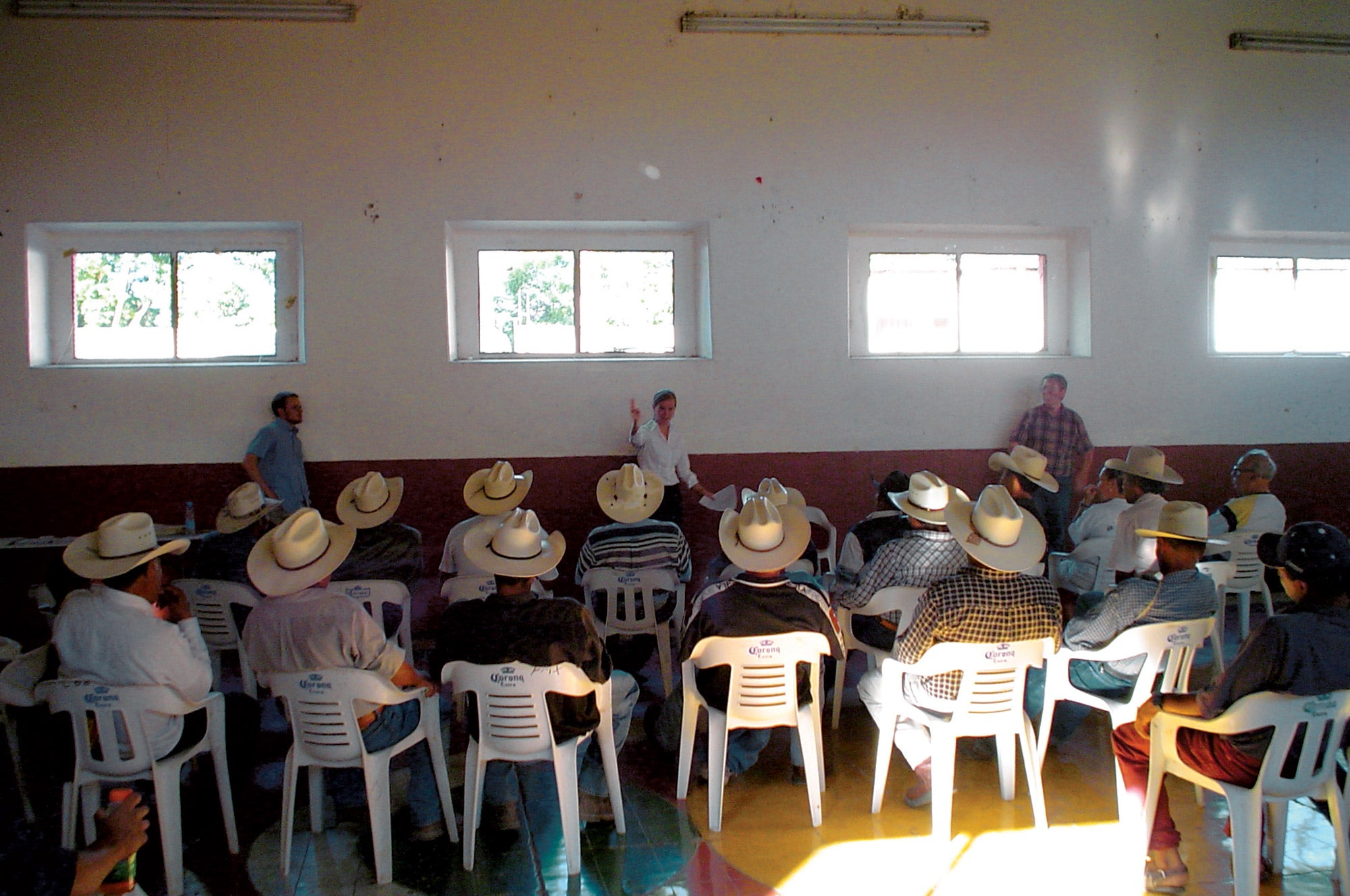Students Take Farmworker Advocacy on the Road
Charlotte Sanders ’05 and José Rodriguez ’06 did legal outreach this summer to help workers who pick America’s produce. They reached out all the way to Mexico.
Through the Florida-based Migrant Farmworker Justice Project, the students held “know your rights” sessions in parts of Mexico that traditionally send migrant workers to the United States on H-2A guest worker visas.
In the villages and rural areas where they held their meetings, the students heard from workers who had not been reimbursed for their travel expenses to the United States, who had been charged rent by the growers, who had been paid less than the agreed-upon wage or who had traveled to the States but then been given no work–all violations of their contracts and U.S. law.
“H-2A workers are concerned about being invited back to work the next year,” said Sanders, “so they fear growers’ retaliation. We hoped that if we went to Mexico, people might be more willing to talk to us.”
They did hear from workers, and some of their stories put today’s injustices in historical perspective. “An old man would come to the meeting all hunched over and pull out his Bracero card with a picture from when he was 18,” said Sanders. The Bracero program, she explained, brought Mexicans to work on U.S. farms to make up for labor shortages caused by World War II. “We couldn’t do anything about the pay claims of these older workers,” said Sanders. “But it was pretty striking and pretty sad that the problems they were talking about were pretty much the same as [the ones] the guys talked about who had gone to the U.S. last year.”
During the students’ time in Mexico, some workers expressed interest in lawsuits, but most hesitated.
“People felt freer to approach us,” said Rodriguez, “but not necessarily to take action, to exercise their rights.”
Their experience confirmed for him the importance of reforming laws as well as doing outreach. Sanders agrees. In the meantime, after hearing workers’ stories and being invited into their homes, she’s happy to have a better sense of where they are coming from.
